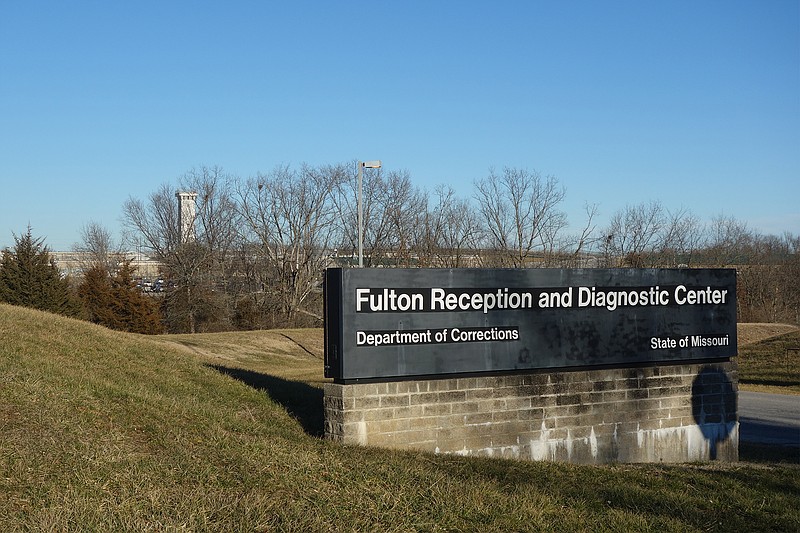A new women-only facility opening in Fulton is designed to help offenders prepare for life outside.
"Our goal here is to interrupt that cycle of folks going to prison," said Vince Rost, unit supervisor of the Fulton Community Supervision Center.
The facility will be housed in the formerly co-ed Community Supervision Center and is slated to open Feb. 4. It can house up to 40 women and will be operated by the Missouri Department of Corrections.
Six CSCs currently exist in Missouri, but this will be the first all-female residential probation and parole program in the state, Rost said. As a central location, the Fulton CSC will receive women from all over the state. The other five facilities will continue to serve men.
The Fulton CSC's transformation is being funded through "justice reinvestment" legislation passed in 2017, a law designed to support community-based treatment for people in the criminal justice system who have substance addictions and mental illnesses.
That includes many incarcerated women, Rost said.
"(Most) women come to the criminal justice system for different reasons than men do," he added. "Almost all of the women in the criminal justice system have some sort of trauma, usually from abuse in childhood and adulthood."
Missouri's prisons have a recidivism problem among women, according to research by the Council of State Governments Justice Center. The state also has the fastest growing rate of incarceration for women in the nation.
"Nearly 90 percent of women newly admitted to prison are there for nonviolent offenses, and about two-thirds of those returning to prison are there for technical supervision violations - not for new crimes," said Karen Pojmann, communications director for the Missouri Department of Corrections.
It's in the state's best interest to help offenders succeed in completing their probation or parole, Rost said.
"In general, we house 32,000 inmates in Missouri," he said. "We supervise, in the community, approximately 60,000."
A new prison costs about $750 million to build and $22 million annually to operate, while probation and parole cost much less per individual. So, preventing the prison population from growing makes economic sense.
Facing trauma
The facility targets women who, due to one factor or another, are most likely to struggle with competing their parole or probation. Women directed to the CSC as part of their probation or parole will complete an intensive 120-day program designed to decrease their likelihood of re-offending or violating their supervision. Each year, about 120 women will pass through the facility.
"In order to help people make good choices, you have to change their thinking patterns," Rost said. "A lot of our programming will be cognitive-based, designed to help people change their thinking for their own good."
The reasons why traumatized women are more likely to end up in trouble with the law are many and complicated. Some who've had an abusive or neglectful childhood may never have learned essential life skills and may end up engaging in criminal behavior to survive. Others who've experienced trauma may develop unhealthy coping methods, such as substance abuse or violent behavior.
"As a result of the trauma, people try to numb themselves or cover those difficult feelings by using substances," Rost said.
Programming at the Fulton CSC will be designed to help women develop resilience, healthy coping methods and plans for a better life.
"We have an opportunity to intervene in their lives and help them with their needs so they don't go to prison," Rost said.
Staff at the CSC have received trauma-informed training to help them support women in the program.
"We're working on more extensive gender-responsive and trauma-informed assessments and training for staff so we can better address the specific needs of this population," Pojmann said.
Rost and his staff will be partnering with local agencies, such as the Coalition Against Rape and Domestic Violence, to provide programming tailored for participants. They're very much open to forming more partnerships, Rost said.
The CSC's budget is limited, so he's had to get creative in finding ways to help the incoming participants.
"Researchers at the St. Louis University will be doing an experiment in yoga for trauma victims here," Rost said. "Once they're done with their study, they'll train us to continue their yoga program."
Even the decor is carefully chosen. Rost and his staff have picked out comfy second-hand furniture for common areas, round tables to "encourage social interaction" and green and blue paint for the walls - research indicates people find those hues soothing.
Also vital: Women completing the program won't just be spat out onto the streets to fend for themselves. The last six weeks of the program will be spent planning everything from housing to job options to finding a support system.
"If they have good family support back home we'd get them back to their community," Rost said. "If where they're coming from is not good, we want to help them come up with a better plan. We're going to work much harder with them to establish support structure."
Similar facilities in Iowa, Oklahoma and North Carolina have seen good results, he said.
Agencies or individuals interested in partnering with the facility may reach Rost at [email protected].

